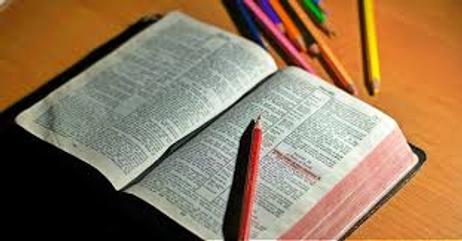While some public schools have made their classrooms decidedly politically correct, including banning Christmas carols on campus, other states seem to be headed in the opposite direction. A number of states around the country are introducing legislation to bring the Bible back to school – purportedly as a resource for teaching the history of the United States, rather than advocating a particular religion. Still, many believe that biblical studies of any kind in public schools are a flagrant First Amendment violation. Which side is right? It turns out the matter may be too complex for a single, easy answer.
The First Amendment
The First Amendment states, “Congress shall make no law respecting an establishment of religion, or prohibiting the free exercise thereof…”
“Largely because of this prohibition against government regulation or endorsement of religion, diverse faiths have flourished and thrived in America since the founding of the republic,” states the Anti-Defamation League. “Indeed, James Madison, the father of the United States Constitution, once observed that, ‘the [religious] devotion of the people has been manifestly increased by the total separation of the church from the state.”
The words of the Constitution sound relatively straightforward, but they have been hotly debated for generations. Determining what constitutes the separation of church and state is not an easy task, particularly when First Amendment issues enter into the public school forum. Prayer, Bible study, and teachings on creationism and evolution have all become hot-button issues in school districts across the country, and some schools question whether any sort of religion should be expressed on campus. Now, another issue is being discussed in some states – the issue of whether to incorporate biblical studies as a part of the literature or history curriculum.
This video discusses teaching the Bible in public schoo.
New Hampshire Introduces Mandate for Bible Class
New Hampshire is one state that has recently entered the First Amendment fray, with a new bill that would require schools statewide to offer an elective Bible studies class. According to a report at Newser, advocates of the bill state that the Bible is an inescapable part of American history that influenced the philosophy of the Founding Fathers as they created the new republic.
“The issue is not trying to teach religion but to talk about what is the true history of America whether some people like it or not,” GOP State Rep. Jerry Bergevin told Newser. “ Bergevin is the sponsor of the new bill, which would create an elective social studies course where students would explore the Old and New Testaments and learn “biblical content, characters, poetry and narratives that are the prerequisites to understanding contemporary society and culture, including literature, art music, morals, oratory, and public poetry,” according to a report at the Concord Monitor.
“The Holy Bible is the bedrock of Western Civilization,” Bergevin told the Monitor. “Love it or hate it, it’s in every aspect of humanity.”
However, not everyone agrees with Bergevin’s assessment of the significance of the Bible in American history or in the appropriateness of bringing the Bible into the classroom.
“This is a specific attempt to hold one religion over others and hold a religion over no religion,” the New Hampshire Civil Liberties Union wrote. “That’s constitutionally prohibited,” the statement added, asserting that the addition of biblical studies in the classroom “would be inviting a legal challenge.”
Others are comfortable with the idea of providing a biblical studies class in schools but do not like the idea of requiring schools to offer it.
“I support having an elective course like this,” Rep. Kathleen Lauer-Rago told the Concord Monitor. “But I don’t understand why we should mandate it at the state level.”
Proponents of the bill say the mandate is necessary to ensure all schools are comfortable offering such a class.
Arizona Lawmaker Wants to Bring Bible Class to High Schools
The Times and Democrat reports that an Arizona lawmaker is also trying to bring biblical studies into high school classrooms in his state. Rep. Terri Proud, R-Ariz., tells the publication that students will benefit from the course that will teach about the Bible and its role in culture. Dr. Alex McFarland, author, speaker, and talk-show host, agrees with Proud’s efforts. McFarland has launched his own initiative to bring biblical values back to America, although he does not agree with extending beyond the bounds of advocating the Christian faith in schools.
“Bringing biblical education back to our classrooms is exactly what our country needs,” McFarland told the Times and Democrat. “The Bible, whether people want to believe it or not, is the book upon which our country was founded. These valuable Bible classes in our high schools don’t have to teach Christianity to be successful. To give students a working knowledge of the Bible, whether for spiritual or academic reasons, will help restore our country to those founding biblical principles.”
This video reports on a requirement that West Virginia schools teach the Bible.
South Dakota Wants Biblical Instruction in Schools
South Dakota is another state looking to add biblical instruction to schools across the state. According to One News Now, the South Dakota Legislature has overwhelmingly passed a resolution recommending schools provide biblical instruction. The bill’s main sponsor, State Rep. Steve Hickey, introduced the resolution that called for “non-devotional” elective study of the Bible, which stresses its historical and cultural significance.
According to the Wall Street Journal, the bill specifically calls for the State Board of Education to “incorporate support for such studies into its curriculum and make all educational bodies in the state aware of textbooks and other materials that have been prepared to teach about the Bible ‘within the guidelines and context of the First Amendment.”
Are these states treading on thin First Amendment waters? Considering the intense debate that ignites each time a line between the state and church is blurred, we would not be surprised to see legal action following these bills.
Questions? Contact us on Facebook @publicschoolreview.














